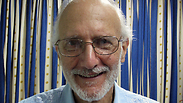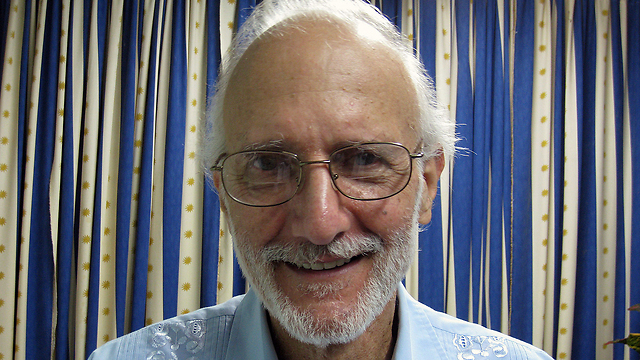
US Jew freed from Cuban jail; signals possible watershed in relations
Alan Gross was imprisoned for importing banned technology and trying to establish clandestine internet service for Cuban Jews; he was freed on humanitarian grounds.
Cuba has released Jewish-American aid worker Alan Gross after five years in prison, a US official said on Wednesday. Meanwhile, American officials said the US and Cuba will start talks on normalizing full diplomatic relations, marking the most significant shift in US policy toward the communist island in decades.
President Barack Obama announced the policy changes from the White House at noon Wednesday.
Cuba arrested Gross, now 65, on December 3, 2009, and later convicted the US Agency for International Development (USAID) subcontractor to 15 years in prison for importing banned technology and trying to establish clandestine internet service for Cuban Jews.
The official said Gross has departed Cuba on a US government plane bound for the United States. He was released on humanitarian grounds by the Cuban government at the request of the United States, the official said.
The case is emblematic of bitter US-Cuban relations dating to the 1959 revolution that brought Fidel Castro to power, and any potential breakthrough appears remote while Gross is still in prison.
The United States has rejected offers to discuss swapping Gross for three Cuban intelligence agents serving prisons terms in the United States, saying it would be wrong to equate Gross with Cuban spies. Havana labels the three as anti-terrorist heroes who defended Cuba by helping infiltrate anti-Castro extremist groups in Florida.
Gross' mental and physical health has declined, he can barely walk or see out of his right eye, and he has grown increasingly suicidal while losing some 100 pounds (46 kg), according to his lawyer, Scott Gilbert.
In April he went on a 9-day hunger strike. After his 65th birthday last May, Gross vowed not to turn 66 in prison, telling visitors he would rather die. He said goodbye to his wife and daughter in July and has refused to see them or US diplomats in Havana, Gilbert said.
Cuba was also releasing a non-American intelligence 'asset' along with Gross, according to a U.S. official. That official and others spoke on the condition of anonymity because they were not authorized to be identified by name before Obama's remarks.
Bonnie Rubinstein, Gross' sister, heard the news from a cousin, who saw it on television.
"We're like screaming and jumping up and down," she said in a brief telephone interview from her home in Texas.
The three Cubans released in exchange for Gross are part of the so-called Cuban Five - a group of men who were part of the "Wasp Network" sent by Cuba's then-President Fidel Castro to spy in South Florida. The men, who are hailed as heroes in Cuba, were convicted in 2001 in Miami on charges including conspiracy and failure to register as foreign agents in the US.
Two of the Cuban Five were previously released after finishing their sentences.
Sen. Marco Rubio, a Republican and possible 2016 presidential contender, said the US and Cuba were moving toward normalized banking and trade ties. He also said the U.S. was poised to open an embassy in Havana in the coming months.
"This is going to do absolutely nothing to further human rights and democracy in Cuba," Rubio said in an interview. "But it potentially goes a long way in providing the economic lift that the Castro regime needs to become permanent fixtures in Cuba for generations to come."
In a statement marking the fifth anniversary of Gross' detention earlier this month, Obama hinted that his release could lead to a thaw in relations with Cuba.
"The Cuban Government's release of Alan on humanitarian grounds would remove an impediment to more constructive relations between the United States and Cuba," Obama said in a statement.
Gross' family has said he was in ailing health. His wife, Judy, said in a statement earlier this month that Gross has lost more than 100 pounds, can barely walk due to chronic pain, and has lost five teeth and much of the sight in his right eye. He has begun refusing to see his wife and daughter, the new chief of the U.S. Interests Section in Havana and members of Cuba's small Jewish community, who had been visiting him on religious holidays.
Obama has taken some steps to ease US restrictions on Cuba after Raul Castro took over as president in 2010 from his ailing brother. He has sought to ease travel and financial restrictions on Americans with family in Cuba, but has resisted calls to drop the embargo.
Obama and Raul Castro shook hands and exchanged pleasantries last year while both attended a memorial service in South Africa for Nelson Mandela.
The surprise prisoner swap has echoes of the deal the US made earlier this year to secure the release of Army Sgt. Bowe Bergdahl, who had been held by the Taliban. In exchange for his release in May, the US turned over five Taliban prisoners held at the Guantanamo Bay detention center.
Reuters and the Associated Press contributed to this report











